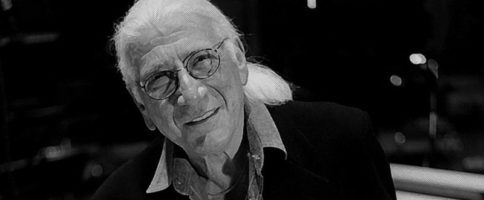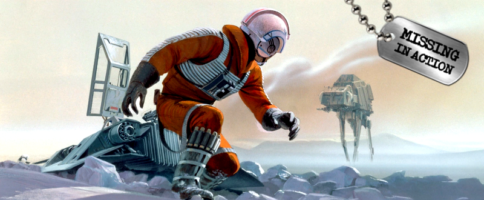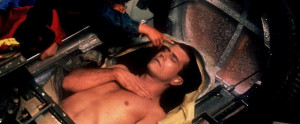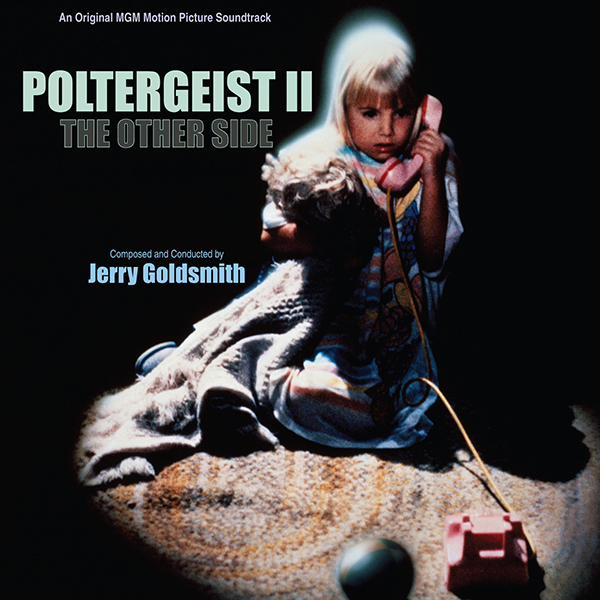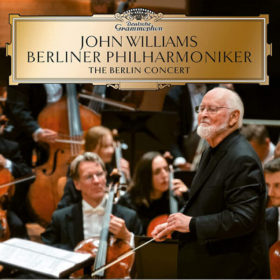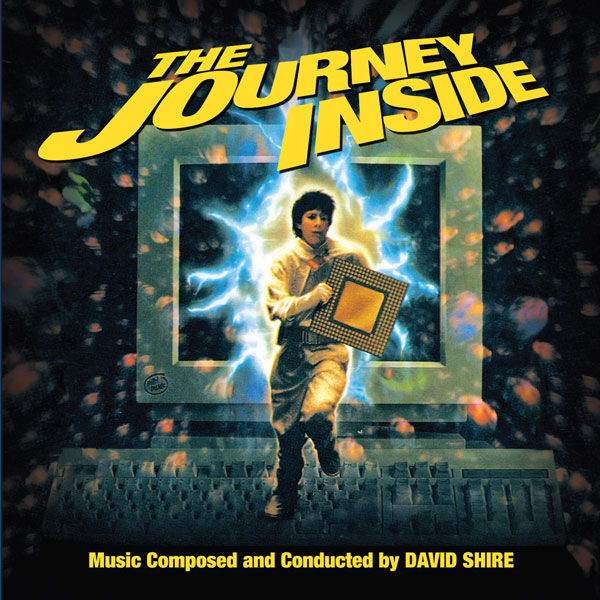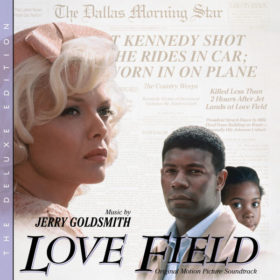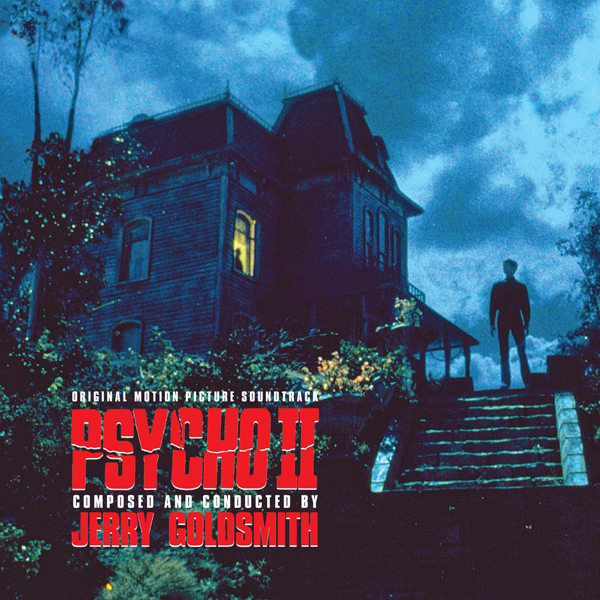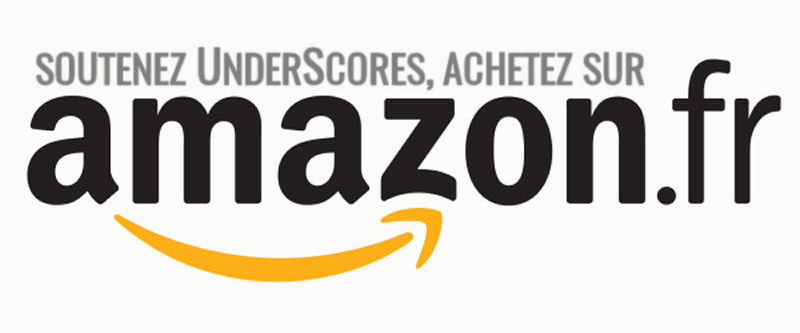A self-taught composer whose only formal musical training consists of six years of piano studies in his youth, Mikael Carlsson was brought up in a musical family, but decided to pursue a career as a news journalist, and spent the first 15 years of his professional life as a reporter, editor and ultimately editor-in-chief for various newspapers in Sweden. In 2005, he decided to switch gears and devote his life to music, writing choral music and composing original scores for a number of Swedish television shows. The same year, he launched his own film music label, MovieScore Media. In the following decade, he has produced over 270 soundtrack albums featuring original score music from films and television series. He is also hired frequently by other companies to produce soundtrack albums. Mikael Carlsson’s knowledge of the classical world as well as contemporary film music repertoire combined with his refined artistic sensibilities and extensive network within the film music industry has made him an in-demand producer and programming consultant for various film music concerts throughout Europe, especially the Córdoba International Film Music Festival, where we met him for an exclusive interview.
Do you remember your first contact with film music?
I was maybe 7 or 8 years old, my father went to the cinema to see Close Encounters Of The Third Kind. And he was blown away by that film, because of the spectacular proportions of it. So he bought the LP, and he played this record to me and my mum over and over again, retelling the story of the film, which was quite scary for a young kid, since it was aliens abducting a kid… That was my first exposure to film music, and I think it triggered my interest in classical music, and I went exploring classical music, as a young kid. And then I sort of rediscovered film music when someone introduced me to John Williams’s music and I realized that was the qualities I was looking for in classical music: the emotional content, the grandeur of Williams…
You’ve worked for 15 years as a journalist, and then you decided to switch completely. How did that happen?
I was forced into this situation because of unemployment. I was involved in the launch of a newspaper, and I was appointed editor in chief for that. Unfortunately, it didn’t work out very well, so after one year and a half, the paper got sacked. Then I decided maybe it was time for me to do what I always had a true passion for: music. So I first ventured in some kind of mix between composing, maintaining journalism a little bit for classical music, but then I realized maybe a label would be interesting to get into as well. I tried to launch a career in TV and write music for some series, but I quickly realized that it wasn’t for me. First of all, it’s so hard to get some work if you are not connected. But I also realized it didn’t bring out the best in me, in terms of music, it felt forced, like I was pretending. It was not for dramas, not even for fiction, but for docudramas, almost library-type of music. It didn’t work for me, so I started the label in 2006 and it’s my main occupation these days! And it’s been 8 years. Time flies!
When you are not releasing CDs, you write choral music. Why?
It’s completely out of passion. While writing music for TV felt a little unnatural for me, what I discovered in choral music was really from the heart, very true to what I wanted to express because of the words, because of the sound, and because of the experience to have the music performed by the human body. It’s actually a very visceral experience. I only began singing around 2006. It was my first experience as a singer. I tried for a tenor position in a chamber choir, I was approved and I sung there for a little while. And my first experience needs to be mentioned: any film music fan that is not familiar with Eric Withacre, an American composer of choral music, primarily, should check out his music. It’s very cinematic, very colorful, it gives you goose bumps all the time. And I sang one of his pieces, Water Night, with beautiful lyrics, a poem by Octavio Paz. And I was literally breaking up when I sung this piece for the first time, because of the harmony, it was so strong…. So I decided to give it a try, to write for an eight part choir. And with shaking hands, I handed it to my conductor, just to get advice. And the next rehearsal, she had copied the full piece for the full choir to rehearse. I was not expecting that! I was shaking, very intimidated, but it sounded pretty good, so that was my start. And I continue doing that, I write a lot of music for her and for that choir, to this day.
Why did you compose the Rainbow Suite?
That was a commission I got for a festival for gay, lesbian and transgender people in Göteborg, my hometown. So my idea was to compose a piece in connection with the rainbow flag that would be able to reflect the meaning of the colors in the flag, because there is a meaning assigned to all the colors. So I searched out various independent poets online, browsing to find appropriate poems that would fit. And I composed this 30 minutes suite, and we performed this during the festival. However, no one realized that on that very night, at that very hour, there was the finale of the Eurovision contest on TV. So basically, all the guys who were supposed to be there were in front of their TV, since it’s the main gay event in Europe every year!
You’re also providing consulting for festivals, especially this one in Cordoba. What do you do exactly?
Well, it depends. Each assignment is different. For instance, in Göteborg, I’m involved in a few things. But at that level, for a full professional concert hall, with all the machinery and all the staff, it’s basically more or less just a repertoire consulting thing, to put the music in good order, work with the conductor or the artistic director. It’s different in Cordoba, it’s more the organization of the concerts. We work with seeds of ideas, for example the one to make a tribute to Jerry Goldsmith, since it’s been 10 years since he died, and it’s a double anniversary with the festival itself. My role is to put together the programs, and show them to David (Doncel, president of the Festival) and Arturo (Diez Boscovich), who is the artistic director. And the next step is of course to acquire the music, to collect the scores and to approach composers. For instance, to ask Joel McNeely if he would like to have his piece performed…
So we collect all the material and then we have to think about the arrangements for the concert. This year, we have a concert manager who deals with all the corrections or rearrangements that need to be done, so I send all the material to him. Last year, I was in charge of this process as well, and it was a lot of work. The organization of the festival takes a lot: we have to deal with cancellations, missing parts of scores, rehearsals schedules… We have to make sure that each of our guests will have time to rehearse. It’s very logistical. I also had to work with the people in charge of the sound, and I wasn’t prepared to do it on the Doctor Who symphony. But I had to be in the booth because it needed amplifications, and we had to work the balance with the orchestra.
How do you retrieve the scores?
Each case is different. I launched my first fanzine in 92, or 93. Through the years, the network has growned, so it’s not a problem to approach a composer to begin with. But then, to get the scores, it’s usually through their copyist, the firm or the company they are working with for the music preparation. In the case of Goldsmith, I have worked with James Fitzpatrick this year, who has some arrangements done for previous recordings, but also to get the scores from others sources. It’s a bit like a detective work sometimes.
How long did it take to collect everything you needed?
For this year, I think that I started working two months prior to the festival, working almost fulltime. The deadline to get everything delivered was one month prior to the festival, but we had some very late additions. And it’s so much fun when you attend to the concert and you see that the piece works. It worked during rehearsals too, but it lacked the energy of the concert itself. I am watching the audience, everyone is smiling, and I am happy at this moment! That’s the point, that’s really why I am doing it! And also, there is a real difference producing concerts here from the concert hall, the audience is so different, the fans. Since I am a fan too, I know what they are expecting and what kind of things are going to give them goose bumps. And this is what’s important. The process is very similar between the production of a concert and a good album: it should work as a full listening experience.
At first, MovieScore Media releases were only digital, and then CD’s came, more and more. Why?
I had a naive idea in the start that I could educate the audience. Digital downloads is a good way to experience music. I’m still myself most of the time buying music digitally. But I quickly realized it didn’t take off. The investment in doing digital albums is not much, compared to CDs. But the payoff is not much either. So when you are doing a CD, it costs a little more but we sell more music to the fan base. So I cut this deal with Screen Archives in order to distribute my CDs, and it quickly took off. I had a few hits in the beginning, like the last Poledouris CD, The Legend Of Butch And Sundance, and a few others. But then, I started to release a lot of music that was hard to sell. Let’s be realistic, most of the music I produce is by unknown composers, for small movies. Quality music, but still difficult to sell because no one heard of it. It’s a tough sell, and we put out a lot of CDs in a few years, so it sort of forced me to go back a little and balance. So I started to release some stuff only digitally: it just doesn’t work to launch everything out on CD, unfortunately.
But some composers were unknown until you discovered them…
I know, and that’s just fantastic. But the reality of this business has really changed since I put out the first albums by James Peterson, Ryan Shore and Jeff Grace… It’s been more years than I realize and it changed, it’s such a tough competition now. The amount of CDs or digital downloads coming out every week is just amazing. Thirty to forty titles some weeks! You just have to take a look at any list of new soundtracks. This is what I am up against: you have all the big titles of the week, cinema and series, you have all the reissues by great composers, you have all the Golden Age stuff, and you have a little new score by some unknown composer, and it drowns… So we really have to stand out for some reason. It’s more difficult. Only 5 years ago, it wasn’t like that.
What is basically your daily job at MovieScore Media?
I produce albums all the time. I have several productions going on in at the same time, at different steps. Every production starts with me approaching a composer or a studio for an outcoming film. As you know, most of my albums are dedicated to current films. The collector stuff, the archival stuff, the Discovery Collection is like a little bonus for me, a very nice part part, but the focus is on contemporary movies. I have this system where I am monitoring everything that is coming out in cinema or television in the next couple of months, and then I send out emails and requests to people. Also, all the time, composers and studios approach me, especially young composers, because they know I have a tendency to be interested in their work. That’s the way it starts and if the deal is done, it takes a while in terms of back and forth with the negotiations, of course. The next step is that I get all the music from the composer and I produce the album. The composers rarely have a finished album. And I like to get access to the full score, to get the cue sheets, and work on an album shape. And then I send it to them for approval, a few adjustments, then it’s mastered and it’s the artwork, which I do myself. Thanks to my background in journalism, I was a graphic designer, so it was only natural to do it.
What I quit doing is actually liner notes, I work with Gergely Hubai, a Hungarian friend. He is doing a lot of liner notes, which are quite sparse on my albums: I don’t think we need 24 pages to explain the music. I like the music to speak for itself. So it’s more or less a brief background story, a few memories from the sessions… I don’t think we need a track by track analysis, even if I think that some people love it. But I need to have a balance, because if I was doing that, it would take too much time, it would be too expensive, and I wouldn’t be able to release so many things. And at the end of the process, we have the royalties accounting, it’s boring but needs to be done. And this process goes with about 10 albums at the same time. So this is my daily job. And since I also compose music, if I get a commission for a choir, I put the label aside for a few days or a few weeks, depending of what I need, because this is really a true passion. For my own sake…
You also created another label, ScreamWorks…
The horror movies fan base is a strong one, and the soundtrack fan base is too. So what if we combine them in a more clear way? Perhaps ScreamWorks appeals more to horror fans that may not normally buy soundtracks but would find there an interesting concept. So that was the idea, and then we came up with the name, ScreamWorks, which I found hilarious. In Sweden, where I come from, Göteborg, there is a certain sense of humor called « Göteborg humor ». It’s not funny, but I love it. And ScreamWorks does have this kind of word play. So it was partly business but also a lot of fun to do this.
A year ago, you started collaborating with Kronos Records. How did it work?
It worked for a while, but unfortunately, we are not going to continue. We had one year of marriage, and we agreed to separate and remain friends. We shared the same vision when it comes to advocate good music and perhaps less known composers. But my workflow is that I release so many albums, and that alone was a discrepancy between the two of us. So we decided to separate and to find other ways to go. It’s a little sad because we had a lot of fun. Godwin (Borg) is a very funny guy.
Will you continue to release physical CDs?
Yes I will. I am working on a new solution. I shouldn’t say yet what the options are because I am waiting for confirmation. But there will be MovieScore CDs coming out, definitely. There are some titles that have been in limbo, like Grand Piano, but it will come out. I will also have a few new titles in my Discovery Collection, a score by David Shire for instance, a TV score called Rear Widow. So there is a lot of stuff coming out, even if it will come in a slightly different way.
How do you decide how many copies you’re going to put on the market?
That’s something I believe that should be up to the distributor of the music, to make that choice. I have done big editions of CDs I thought would sell, and there is 600 copies left. I’ve done 500 copies editions at that were sold out in two weeks. It’s unpredictable. George And The Dragon sold out quickly. Gast Waltzing? Who is he? No one heard of him! And I spoke to Craig Spaulding from Screen Archives, and he told me: « It’s because of the title… It has dragon in it. It sells. Everybody knows it’s gonna be epic! » It’s very unpredictable, and it’s very difficult to decide. But normally, it’s not very fun for the distributor to have a lot of CDs lining up, so we start small. And sometimes we do repress some CDs.
There has been some confusion in regards to this because at first, we did what everyone else was doing: limited editions. So it was written « limited edition » on the CD, at 1000 copies or whatever. And then I did Let The Right One In, a limited edition of 500 copies. And it went crazy, it sold thousand and thousand of copies. And at that point I thought: « This is just stupid, just a marketing trick to get those 500 sold. » So, if there is a marketing demand for many more, would I do more? Of course I would. There is nothing prohibiting that, no studio deal, no musicians in the way, and the composers are only thrilled that I do more. So I decided not to limit anymore, because it’s a trick and it appeals to the vanity of the fans, for them to be able to say: « I’ve got a copy of this ».
But it might be that I need to adjust to that again, just to take part in the competition and not stand there thinking that those guys are just fooling around, because that’s what I feel about it, personally. I know that there is some studio regulation for some scores, but I put out a few of those as well and no one ever ask me to limit the edition to 1000 copies. Why would they? Everyone wants to sell. But sometimes you have an advance that’s paid for a certain amount of copies and in this case the deal is done. That can be a scenario. So I started for a while having this notion on the CDs saying that it’s the first edition of 500 copies, implicating that if there is interest, there would be a second edition. That was something that Doug Fake, from Intrada, suggested, and I thought it was a brilliant idea, because it was a very honest thing to say: « We made 500 copies, there may not be more, but it’s not limited. » But I know it confused everyone: « Is it limited or not? If it’s not limited, why do they make only 500 copies? » But frankly, how does a collector really know that I didn’t press 1000 copies on the market, even though it says 500? How do you know that? That is why I’m saying it’s a trick. I am not saying that anyone is cheating, I don’t think they do. But the fact is that a limited edition doesn’t matter, the music does.
On which criteria do you select your releases?
Mostly musical criteria, obviously. You have seen my catalogue, it’s full of music that is interesting for films which are not particularly good sometimes, or even released in a few cases. I like to work with composers who have a vision, a style, and contribute something fresh. And then of course I look at the commercial criteria of the film. I try to find films that come out at a point that I can tie an album release. I try to survive, really. But still, if the music is rubbish, I won’t do it. I have done recently a few releases of electronic music, which I think some people may wonder why I released them… But I really like them. For instance, The Machine, which is available only in digital, is a sci-fi movie with a retro great score, Vangelis style. It’s something completely different from the orchestral stuff that I really love, but I think it’s fresh in another way. It’s weird, these past few months, I released a lot of retro style eighties scores that sounded like Faltermeyer. But it’s just a coincidence, it happens to be that way at the moment.
Which albums are your best sellers?
Let The Right One In. Obviously the Merlin albums have done very well, especially on the digital market, because it’s very evident that television sells very well on digital. But it sold a lot of CDs as well. Emma, the BBC series. Here in Spain we have recently El Tiempo entre Costuras. Grand Piano has done very well, so far, on iTunes. And prior to that, there was the Poledouris album, and Back To Gaya.
Does it happen that composers refuse to release one of their scores?
It’s very unusual that composers refuse. That happened on a very few occasions that they wouldn’t want the score out, but it’s rare. So they usually are just happy and, I think, surprised by the treatment they get. I’m a composer myself, I have a sensibility when I am shaping the album. So at first, most of them are saying: « Yes, of course, you can do it. What do you want me to do? » So I tell them: « Send me the full score and I will give you back the album shaped. » And this is when they start to get excited. Because many of them didn’t see it this way, it’s not what they expected, so it’s a new experience for them. They couldn’t realize it could be done this way. So that is really rewarding for me, this is really the fun part. For instance, Benjamin Wallfisch asked me to do production for him for albums on other labels, just because he is happy with the way I work.
Did you ever release an album only to please a composer?
No. Well, I did one album with Ryan Shore, he wanted to do a surround 5.1 mix of Jack Brooks. There wasn’t much in it for me, but I did it anyway. This is the type of things I may have done a couple of times. But no, I wouldn’t release an album just to please someone. I think it’s very important to stick to your mission and be very editorial.
Is it difficult to secure the rights to release a score?
Sometimes it’s very difficult, sometimes it takes one e-mail, and it’s done. But when it’s difficult, it may take 50 e-mails and you are not even sure to close the deal. This is something I know from my colleagues: all of us, we have to educate the film companies, the producers, because they don’t understand, they don’t know how it works. Once you have done that, it becomes easier for the next score.
Are there scores that you failed to release because you couldn’t close a deal?
I was in for Police Academy, for instance. I discussed the project very early on, and then I made an offer to Warner Bros. But they shifted to another label, and then I think I gave up on that. My idea was to produce all the 7 movies in a box, instead of the full scores because I am not a fan of the complete presentation of scores. So this is one score I wanted to get… But I was not disappointed, it’s not a big deal, it happens all the time. Sometimes it happens that you work with a composer, and then he gets a good gig for a bigger studio, and that studio has already established a business relationship with another label, so I don’t get the score. That happens, it’s ok. There is so much music to put out! I have so much to do already, if I loose one or two, it’s really not a big deal.
What are your relations with other films music labels?
Well, we don’t have a relation really, except for Kronos records of course. But we’re colleagues and there is a certain amount of respect between us. Like we wouldn’t go on a message board and criticize a label. It would be unprofessional. But at the same time it would be refreshing for the professionals of the soundtrack business to sit down sometimes and discuss what we are doing both aesthetically and business-wise. There are so few of us, so we could really meet and have some beer…
Yes, even though you are not playing in the same field, they wouldn’t release most of the scores you select…
Yes, it’s true. One my biggest hits would only maybe end up to be considered by most of them. So, yes we are very different, with different perspectives and different marketing segment. Which is good, for both of us…
How do you see the future of the physical CD?
I definitely think it’s there, and also the vinyl. It’s a weird market for vinyl, but I get requests now and then. It’s very connected to the cult films, like Let The Right One In, I sub-licensed it to a vinyl company. And Big Bad Wolves, that is going to come out on vinyl too. It’s very small of course, but I think that if there is room for vinyl, there is definitely room for CDs. The market has been going through some kind of transformation for number of years, digital sales are more fruitful than they were 6 or 7 years ago, but at the same time, I think the soundtracks collectors, the fan base, are growing. So this market is little but growing strong, and most of the people of that fan base want CDs. But then again, there is competition, a lot of titles. Too much probably, even though I contribute… Maybe the CDs for Kylie Minogue, for instance, are dead. But not for very specific niche like soundtracks or classical music. There are so many audio fans out there. But it might be that the price of the CD is going to become more expensive than it is today. And the digital market is going to change as well, because even though streaming is not very lucrative yet, it’s here to stay, it’s such an easy way to explore music. So, as soundtracks labels or records labels, composers or artists, we need to adjust to that reality and find ways to make it work for us. None of us would have survived without Spotify, most of us would be dead and gone a long time ago. So the whole thing needs to adjust itself and to find its shape.
How many film music fans are there all around the world, in your opinion?
Somewhere between 5.000 and 10.000, I guess. Maybe more… I remember that many years ago, someone told me there were only 3.000. So that was why all the limited were at 3000 copies! And that would mean that every one of them was buying each CD… So of course it’s more! But we’re not too many though.
What do you think of film music today, in 2014?
These years, I am not buying so many score albums myself. It has to do with the fact that I am listening to so much music at work… So when I am buying an album, it’s usually a holy grail, like a Goldsmith album that I wanted for many years or a Williams that I never bought. But to answer your question, I think the state of film music is pretty good actually. I think there is a huge diversity. The amount of films made every year is so big, the amount of new film music written every year is huge. I think that if you look just a little bit under the top ten movies of the week, you will find unique and interesting material. I am not saying that it’s not to be found in the top movies but there is a tendency to standardize the aesthetics of mainstream film scores, which I find to be very depressing. They all have the same sound, there are no so many surprises, unless it’s Hans Zimmer doing something unexpected in a film like Sherlock Holmes, where he’s really nailing some pretty cool idea, and he can do it and try it because he is very well respected. A lot of the younger composers seem to be forced into going with the temp track, so it’s a bit depressing.
But I think that for instance in Europe, there is so much good film music to be written, it’s fantastic. In France, in Spain, the quality is amazing. So I remain positive. Some are complaining about the lack of time for composers to work on films, like they only have three weeks, there’s no budget… But that’s not really true: there are many films with good budgets, where they have one year to write the music. Nothing is black or white. There is so many beautiful stuff waiting to be discovered, you just have to look for it. If you go and watch only the top three movies, and you buy only these three soundtracks, maybe it’s going to be a little black. It’s always the balance between popular culture and finding the more artistically rewarding, as it is in any art form.
Interview conducted on July 27, 2014 by Olivier Desbrosses
Transcription: Stéphanie Personne
Photos : © MovieScore Media / Alexandre Lessertisseur
Thanks to Mikael Carlsson for his availability and his kindness.















